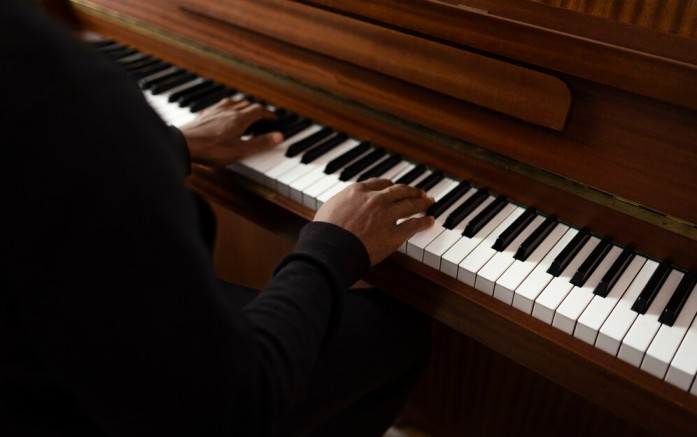How to Choose the Right Musical Instrument to Suit Your Child’s Interest?
How to Choose the Right Musical Instrument to Suit Your Child’s Interest?
Children have a natural affinity for music. Ask any parent, and they can likely still recite the lyrics to the toddler-aged song their child was obsessed with. From “Let It Go” to “Baby Shark,” children’s songs capture their attention, calm them, lull them to sleep, and help them concentrate.
There are numerous advantages to encouraging a love of music in children. A recent study discovered that children who were exposed to music in infancy had accelerated brain development and improved reading and communication skills. Rhythms and melodies aid children in memorising phrases and understanding language patterns, resulting in enhanced language acquisition.

The Advantages of Playing a Musical Instrument
If your child chooses to play a musical instrument, he or she will enjoy a greater number of advantages. The same study found that music training, whether through school programmes or private lessons, positively influenced the social, cognitive, and emotional development of children. as well as cognitive development. Music is a language that children frequently learn and enjoy together. Melodies can evoke a range of emotions, from happiness and excitement to calm and reflection, allowing children to experience and adapt to new emotions. Other advantages for children who study a musical instrument include:
Improved organisational and academic skills
It takes patience and practice to learn an instrument. Children quickly grasp that practice time is a time of concentration, a study skill that is transferable to other subjects. Additionally, children must organise their schedules around practice time, which helps them assume responsibility for their development. Students of ODM Public School can schedule practise time around their lessons and other obligations, empowering them and teaching them time management skills.
Improved fine motor skills
For an instrument to function, children must hold and manipulate it correctly, which improves their coordination and fine motor skills. When selecting a musical instrument for a child, both the instrument and the child’s size are relevant considerations.
Selecting the Appropriate Musical Instrument
There are so many musical instruments available, from the drums to the harp, that parents are left wondering how to choose one for their child to learn. There are many factors to consider when selecting a musical instrument, but involving your child in the decision may be the most crucial. Learning to play an instrument requires practice and commitment, and for children to make this commitment, they must be enthusiastic about learning the instrument. This begins by allowing them to select a musical instrument that interests them.

An increase in confidence and self-esteem
It is not easy to learn an instrument, but it is so rewarding! Children who choose to learn a musical instrument can hear their progress, which boosts their sense of self-worth. In addition, children who participate in a band or orchestra learn the significance of teamwork, thereby boosting their self-confidence and self-esteem. Without their contribution, the music would not sound the same.
Here are five tips for selecting an instrument for your child to learn.
Introduce them to various types of music.
Frequently, children do not know which instruments produce which sounds. By exposing them to various types of music and taking them to age-appropriate concerts and musical performances, children can begin to recognise the instruments that work together to create a song. Aid them by identifying the various instruments. During solos, highlight the drum, guitar, or piano. When you hear an orchestra, explain that the higher tones are produced by the violin and viola, while the lower tones are produced by the cello and bass. Woodwind instruments, such as the saxophone and clarinet, produce a distinct sound compared to brass instruments, such as the trumpet and trombone. Your child’s interest in a particular instrument can be piqued by exposing him or her to the sounds of a variety of instruments.
Have No Fear of Change
It is acceptable for your child to change their mind over time. It’s not uncommon for a child to begin learning one instrument, but as they mature and become more immersed in music, they may decide to switch to another. This is especially true if your child begins instrument instruction in elementary school. It is easier for younger children to begin playing the piano or drums (typically on a drum kit), but as they grow and develop, they can progress to larger instruments and those that require greater lung capacity, such as woodwinds and brass instruments.
Be Different
Children who are uninterested in traditional or popular instruments such as the piano or drums may be drawn to more unusual instruments. Have you ever encountered a bassoon or an oboe? These are unique instruments! Both the bass clarinet and French horn produce beautiful sounds, but they are rarely chosen by students. To pique your child’s interest in learning to play an instrument, when deciding which musical instrument to teach him or her, look for instruments that are more unusual.
Be Realistic
Some musical instruments can be large and cumbersome, necessitating more developed fine motor skills. When selecting a musical instrument for your child, you should consider how they will hold and transport it. The guitar is an excellent first instrument to learn, but due to its size, it may be difficult for a child with a smaller frame to hold it. The piano, drums, flute, violin, and ukulele make excellent first instruments for smaller hands. However, if your child is interested in a larger instrument, you should investigate smaller versions that fit their hands.
Take a Test Drive
Music stores desire that your child learns to play an instrument! Additionally, they want to ensure that the instrument they choose is one that they will enjoy playing. Most stores allow you to try out instruments so that your child can hear the sounds they make. This also helps them determine whether they can properly hold the instrument. Many music stores offer a rent-to-own programme, so if your child doesn’t like the instrument after a few months and would rather try something else, you can exchange it for a different one.

